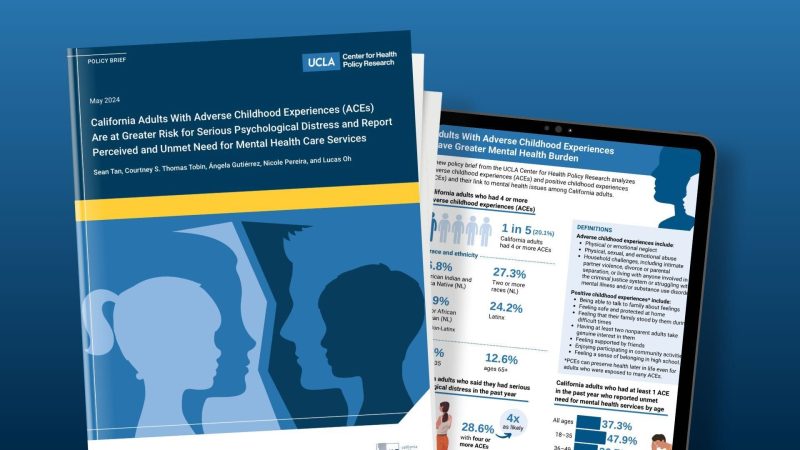California Adults With Adverse Childhood Experiences (ACEs) Are at Greater Risk for Serious Psychological Distress and Report Perceived and Unmet Need for Mental Health Care Services

Summary: This policy brief uses data from the 2022 California Health Interview Survey to analyze the distribution of adverse childhood experiences (ACEs) and positive childhood experiences (PCEs) and their relationship to mental health issues such as serious psychological distress (SPD) and to perceived need and unmet need for mental health care among California adults.
Findings: About 1 in 5 California adults had high exposure to adverse childhood experiences (ACEs) in childhood (had four or more). Compared to adults ages 65 and older, greater proportions of young- (ages 18 to 35) and middle-aged adults (ages 36 to 49) had four or more ACEs. Adults who identified as Native American or Alaska Native, Latinx, Black or African American, or as belonging to two or more racial or ethnic groups, were more likely to have had high exposure to ACEs. Relative to California adults without any ACEs, a larger proportion of adults with four or more ACEs experienced SPD and had a perceived and unmet need for mental health services in the past year.
A larger proportion of older adults had four or more positive childhood experiences (PCEs) compared to young – and middle-aged adults. Compared to other racial and ethnic categories, adults identifying as Latinx, Black or African American, or as belonging to two or more racial and ethnic categories were more likely to report not having had any PCEs. Adults who did not have any PCEs were more likely to report experiencing SPD in the past year.
Read the Publication:








